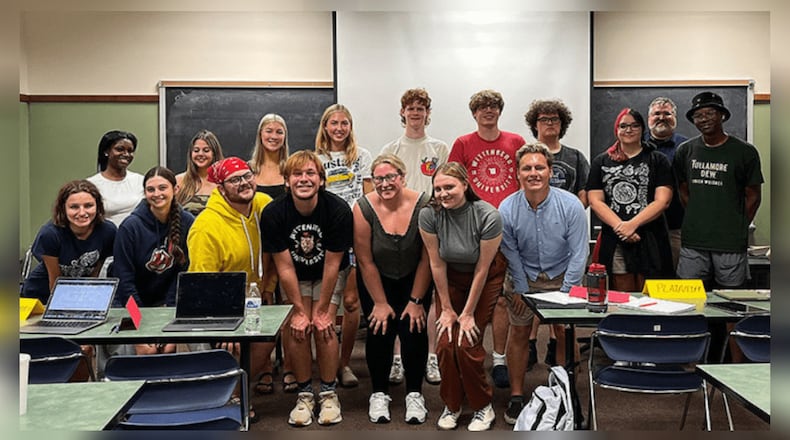James Allan, professor of political science and department chair, and Rob Baker, professor of political science, came up with the idea to revive this opportunity for students. The last time the university had a mock trial team was from 2003-05, which Allan said was very successful, but the new team will be more formalized.
The former team, the Mock Trial Association Team, was student-run, student-funded and regularly competed against larger schools. They placed in the top 10 in regional competitions three times with the help of Johnny Pryor, a former assistant prosecutor for Clark County, and Lowell Stockstill, professor of management, the team’s first faculty adviser.
The new team is under the direction of coach Chris Leapley and in partnership with the Department of Political Science and Office of the Provost. Leapley, a local attorney who started at the university in July, will coach and prepare the team for competitions, be responsible for high school for recruitment and take on the position of pre-law adviser.
“I am extremely passionate about this opportunity and cannot wait to get started,” Leapley said. “In addition to having a competitive team, I have several other initiatives I’m looking to pursue in order to increase Wittenberg’s reach and reputation among the mock trial community.”
A few of Leapley’s ideas include potentially hosting a high school or even collegiate invitational in the coming years and a summer Mock Trial camp for high and/or middle schoolers.
The process to start the team back up was fairly straightforward since the university only had to re-register with the American Mock Trial Association (AMTA), but building another competitive team is a bit more challenging. Leapley said mock trials at the university level had “grown exponentially” since the university had one.
“Mock trial is one of those opportunities a lot of prospective students may be looking for in selecting a college or university to attend,” he said. “I think the university saw a real opportunity to offer something that isn’t seen on a lot of smaller college campuses at this time. Bringing a mock trial team to campus gives Wittenberg yet one more way to stand out among its peers.”
This first year will be about building the foundation for a championship culture and developing the new program and team, Leapley said.
First-year participation in mock trial will require registration for a one-credit hour course, and students will be expected to attend practices on a regular basis.
Each team prepares for tournament competition by practicing for fictional legal situations. Teams receive a packet of case materials from AMTA to prepare a court case to argue against other colleges and universities.
Those interested in being on the university’s team, email leapleyc@wittenberg.edu, gearharte@wittenberg.edu, or jallan@wittenberg.edu.
About the Author

